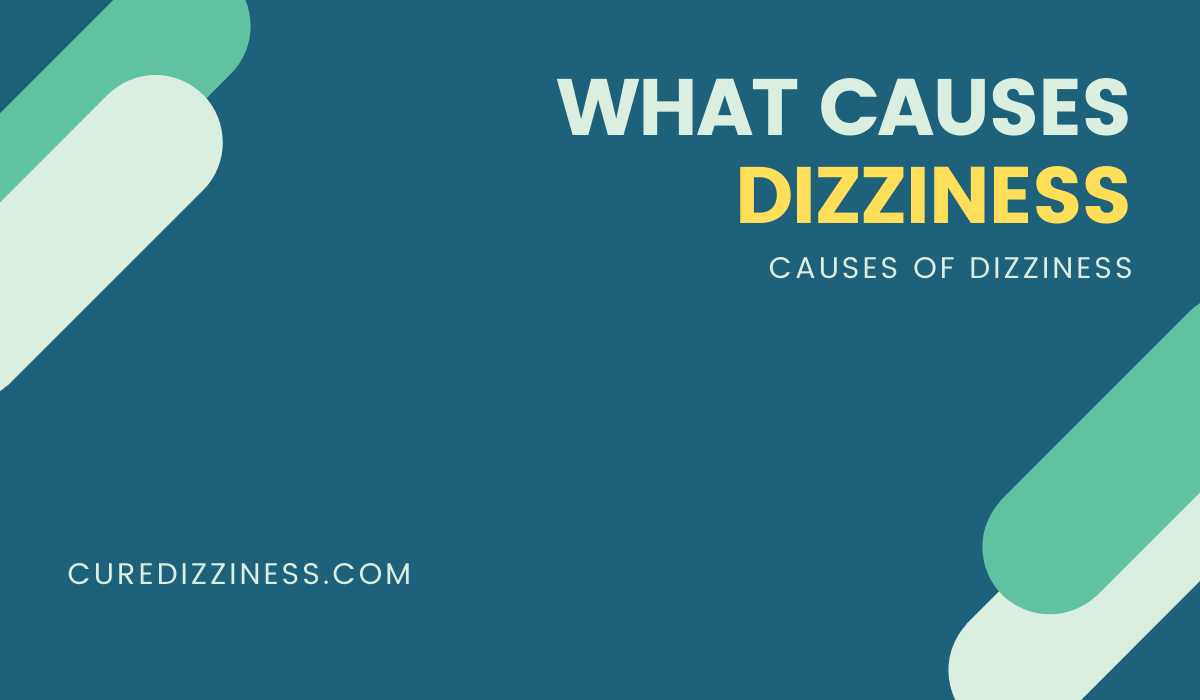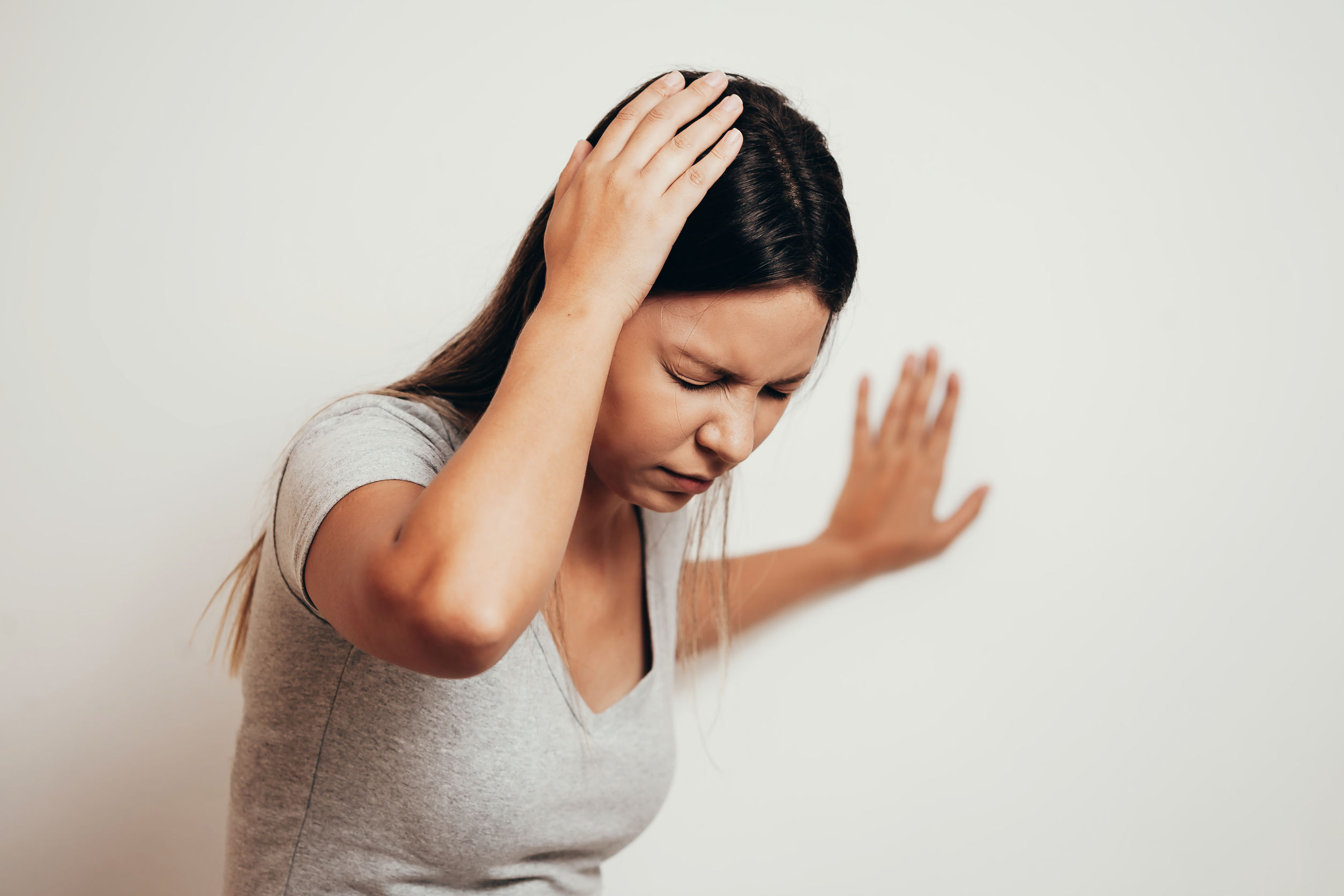Dizziness causes and treatment – Embark on a journey to understand the causes and treatments of dizziness. This guide provides valuable insights into this common condition, empowering you with knowledge to effectively manage and overcome it.
Dizziness, a sensation of lightheadedness or imbalance, can stem from various underlying causes. Whether it’s an inner ear disorder, a neurological condition, or a cardiovascular issue, understanding the root of your dizziness is crucial for effective treatment.
Dizziness Causes: Dizziness Causes And Treatment
:max_bytes(150000):strip_icc()/vertigo-in-multiple-sclerosis-2440805-color-805eb5e6a5234d57b4f66da9d18c4363.jpg)
Dizziness is a common symptom that can be caused by a variety of underlying medical conditions. It can range from a mild, temporary sensation of lightheadedness to a severe, debilitating condition that makes it difficult to perform everyday activities.
If you are experiencing dizziness, it’s important to consult with a healthcare professional to determine the cause and receive appropriate treatment. Various factors can contribute to dizziness, including inner ear issues, certain medical conditions, and medications. In some cases, your doctor may recommend medication to manage the symptoms of vertigo, a common type of dizziness.
For more information on the best medication options for vertigo, you can refer to this resource . Remember, it’s essential to consult with a qualified healthcare professional for proper diagnosis and treatment of dizziness and related conditions.
The most common causes of dizziness are inner ear disorders, neurological conditions, and cardiovascular issues. Inner ear disorders can affect the balance system and cause vertigo, a sensation of spinning or movement. Neurological conditions can affect the brain and its ability to control balance and movement.
Cardiovascular issues can cause dizziness due to changes in blood pressure or blood flow to the brain.
The symptoms of dizziness can vary depending on the underlying cause. Some common symptoms include:
- Vertigo
- Lightheadedness
- Imbalance
- Nausea
- Vomiting
- Blurred vision
- Difficulty concentrating
- Fatigue
Inner Ear Disorders
Inner ear disorders are a common cause of dizziness. The inner ear is responsible for balance and hearing. There are a number of different inner ear disorders that can cause dizziness, including:
- Benign paroxysmal positional vertigo (BPPV)
- Ménière’s disease
- Labyrinthitis
- Vestibular neuritis
The symptoms of inner ear disorders can vary depending on the specific disorder. However, some common symptoms include:
- Vertigo
- Lightheadedness
- Imbalance
- Nausea
- Vomiting
Neurological Conditions
Neurological conditions can also cause dizziness. Neurological conditions affect the brain and its ability to control balance and movement. There are a number of different neurological conditions that can cause dizziness, including:
- Stroke
- Transient ischemic attack (TIA)
- Multiple sclerosis
- Parkinson’s disease
- Alzheimer’s disease
The symptoms of neurological conditions can vary depending on the specific condition. However, some common symptoms include:
- Lightheadedness
- Imbalance
- Difficulty concentrating
- Fatigue
- Vision problems
- Speech problems
Cardiovascular Issues
Cardiovascular issues can also cause dizziness. Cardiovascular issues affect the heart and blood vessels. There are a number of different cardiovascular issues that can cause dizziness, including:
- High blood pressure
- Low blood pressure
- Heart arrhythmias
- Heart failure
The symptoms of cardiovascular issues can vary depending on the specific issue. However, some common symptoms include:
- Lightheadedness
- Imbalance
- Fatigue
- Shortness of breath
- Chest pain
If you are experiencing dizziness, it is important to see a doctor to determine the underlying cause. Treatment for dizziness will depend on the underlying cause.
Treatment Options
Dizziness is a common symptom that can be caused by a variety of underlying medical conditions. The treatment approach for dizziness will depend on the specific cause.
There are a number of different treatment approaches for dizziness, including:
- Medications
- Physical therapy
- Lifestyle modifications
Medications, Dizziness causes and treatment
Medications can be used to manage the symptoms of dizziness, such as nausea, vomiting, and vertigo. Anti-vertigo drugs, such as meclizine and promethazine, can help to reduce the sensation of spinning or dizziness. Diuretics, such as furosemide and hydrochlorothiazide, can help to reduce fluid retention, which can contribute to dizziness.
Physical Therapy
Physical therapy exercises can help to improve balance and coordination, which can reduce the risk of dizziness. These exercises may include:
- Vestibular rehabilitation exercises
- Balance training
- Neck exercises
Lifestyle Modifications
Lifestyle modifications can also help to alleviate dizziness. These modifications may include:
- Getting regular exercise
- Eating a healthy diet
- Avoiding caffeine and alcohol
- Getting enough sleep
Differential Diagnosis
Determining the underlying cause of dizziness is crucial, as it can indicate a wide range of medical conditions. Differential diagnosis involves distinguishing dizziness from other conditions that may present with similar symptoms.
Conditions that can mimic dizziness include migraines, anxiety, and dehydration. Each of these conditions has its own unique set of symptoms and diagnostic criteria, which are important to consider when making a diagnosis.
Diagnostic Tests and Procedures
To differentiate between dizziness and its potential mimics, healthcare professionals may perform various diagnostic tests and procedures. These may include:
- Physical examination: This involves checking for signs of underlying medical conditions, such as neurological abnormalities or cardiovascular problems.
- Blood tests: These can detect electrolyte imbalances, anemia, or other blood disorders that may contribute to dizziness.
- Imaging tests: CT scans or MRI scans can help identify structural abnormalities in the brain or inner ear that may cause dizziness.
- Balance tests: These tests assess the function of the vestibular system, which is responsible for balance and spatial orientation.
Table: Symptoms and Diagnostic Criteria
The following table summarizes the key symptoms and diagnostic criteria for dizziness and its potential mimics:
| Condition | Symptoms | Diagnostic Criteria |
|---|---|---|
| Dizziness | Feeling lightheaded, faint, or unsteady | – Vertigo (spinning sensation)
|
| Migraine | Intense headache, often accompanied by nausea and vomiting | – Severe, throbbing pain on one side of the head
|
| Anxiety | Excessive worry or fear, often accompanied by physical symptoms | – Feeling restless or on edge
|
| Dehydration | Loss of body fluids, often due to inadequate fluid intake | – Thirst
|
Prevention and Management

Dizziness can be a distressing and debilitating condition, but there are steps you can take to prevent and manage it.
Prevention Strategies
There are several strategies you can adopt to reduce your risk of experiencing dizziness:
- Avoid triggers:Identify and avoid situations or activities that trigger your dizziness.
- Maintain hydration:Dehydration can contribute to dizziness, so make sure to drink plenty of fluids throughout the day.
- Get regular exercise:Regular physical activity can help improve your balance and coordination, reducing your risk of falls and dizziness.
Management Techniques
If you experience dizziness, there are several things you can do to manage it:
- Use assistive devices:Canes, walkers, or wheelchairs can provide support and stability, reducing your risk of falls.
- Modify activities:Avoid activities that make you dizzy, or modify them to make them less challenging.
- Practice relaxation techniques:Stress and anxiety can worsen dizziness, so practice relaxation techniques such as deep breathing or meditation to manage these factors.
Case Study: Successful Dizziness Management
A 65-year-old woman with a history of vertigo was experiencing frequent dizziness. After consulting with a healthcare professional, she was diagnosed with benign paroxysmal positional vertigo (BPPV). The doctor performed the Epley maneuver, a simple procedure that repositioned the crystals in her inner ear, and provided her with exercises to prevent future episodes.
The woman’s dizziness symptoms resolved within a few weeks, and she has been able to maintain a good quality of life.
Handout: Tips for Preventing and Managing Dizziness
Prevention:
- Avoid sudden head movements.
- Stand up slowly from a sitting or lying position.
- Drink plenty of fluids.
- Eat a healthy diet.
- Get regular exercise.
Management:
- Sit or lie down if you feel dizzy.
- Close your eyes and focus on a fixed point.
- Take deep breaths.
- Use a cane or walker for support.
- Avoid driving or operating machinery if you are dizzy.
Epilogue

In conclusion, dizziness is a multifaceted condition with a range of potential causes and treatments. By seeking professional medical advice, understanding your specific triggers, and implementing lifestyle modifications, you can effectively manage your dizziness and regain a sense of balance and well-being.
:max_bytes(150000):strip_icc()/vertigo-in-multiple-sclerosis-2440805-color-805eb5e6a5234d57b4f66da9d18c4363.jpg?w=1500&resize=1500,1000&ssl=1)